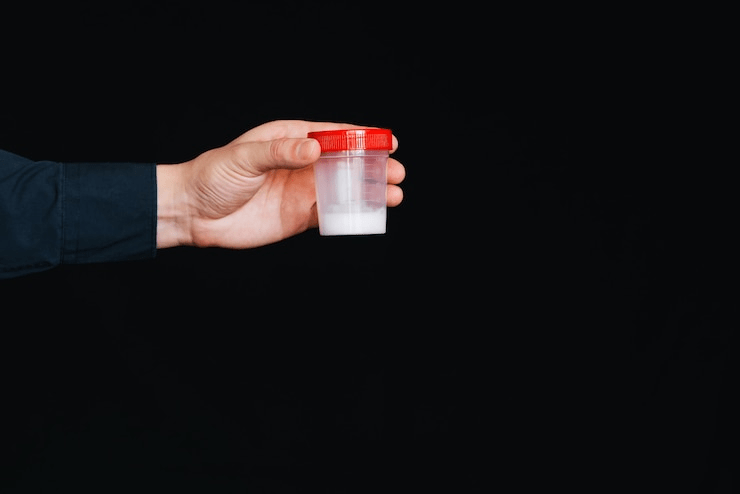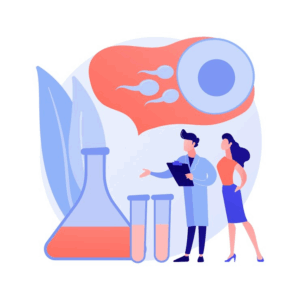Infertility affects millions of couples worldwide, and one of the most concerning diagnoses a man can receive is azoospermia — the complete absence of sperm in his semen. It often leads to the terrifying question: Can zero sperm count recover?
The good news is, in many cases, the answer is yes, depending on the type and underlying cause of the condition. This article explores the reasons behind zero sperm count, treatment options, lifestyle changes, and hope for recovery.
What Is Zero Sperm Count (Azoospermia)?
Zero sperm count, medically known as azoospermia, refers to a condition where no sperm cells are present in the semen during ejaculation. While it accounts for about 1% of all men and 10–15% of infertile men, it’s a serious but not necessarily irreversible condition.
There are two primary types of azoospermia:
-
Obstructive Azoospermia (OA):
Sperm is produced in the testicles, but a blockage or obstruction prevents it from reaching the semen. -
Non-Obstructive Azoospermia (NOA):
The testicles do not produce any measurable amount of sperm due to testicular failure, hormonal imbalances, or genetic issues.
Understanding which type you have is critical in determining whether recovery is possible.
Common Causes of Zero Sperm Count
A variety of factors can lead to azoospermia. These include:
-
Hormonal Imbalances
Low levels of testosterone or dysfunction in the hypothalamus or pituitary gland can disrupt sperm production. -
Genetic Conditions
Conditions like Klinefelter syndrome or Y chromosome microdeletions may impact sperm development. -
Blockages in the Reproductive Tract
Blockages in the vas deferens, epididymis, or ejaculatory ducts can lead to obstructive azoospermia. -
Varicocele
Enlarged veins in the scrotum can impair sperm production and quality. -
Infections
Past infections, such as mumps orchitis or sexually transmitted infections, can cause permanent damage. -
Radiation or Chemotherapy
Cancer treatments may harm sperm-producing cells. -
Undescended Testicles
If not corrected early in life, this condition can impair fertility. -
Lifestyle and Environmental Factors
Smoking, drug use, obesity, high heat exposure, and toxins can affect sperm production.
Can Zero Sperm Count Recover Naturally?
In some mild cases, azoospermia caused by lifestyle or hormonal imbalances may improve naturally or with minimal medical support. For example:
-
Weight Loss: Obesity is associated with lower sperm production. Reducing weight can help restore balance.
-
Avoiding Heat and Toxins: Minimizing exposure to hot tubs, saunas, or chemicals may help.
-
A balanced diet, rich in nutrients like zinc, folate, selenium, and antioxidants, supports testicular function.
-
Stress Reduction: Chronic stress can impact hormones; practicing relaxation techniques can help.
-
Quitting Smoking and Alcohol: Toxins in cigarettes and excessive alcohol affect sperm health.
Although these changes may not fully reverse azoospermia, they can optimize conditions for recovery or assist in treatment success.
Medical Treatments to Recover Sperm Count
Whether zero sperm count is reversible depends largely on its cause. Several effective medical interventions are available:
1. Hormonal Therapy
In cases of hormonal imbalance (like low FSH or LH), hormone replacement therapy can stimulate sperm production. Common treatments include:
-
hCG (human chorionic gonadotropin)
-
hMG (human menopausal gonadotropin)
-
Clomiphene citrate
-
Aromatase inhibitors
This treatment is often used for men with secondary hypogonadism and may require months to see results.
2. Surgical Correction
If there is a physical blockage, surgery may be used to correct the problem. Examples include:
-
Vasovasostomy or Vasoepididymostomy: To repair the blocked or cut vas deferens.
-
Transurethral Resection of Ejaculatory Ducts (TURED): Used for ejaculatory duct obstruction.
3. Varicocele Repair
A surgical procedure known as varicocelectomy may help restore sperm production in men with varicoceles. In some cases, men have resumed normal sperm counts within months after the operation.
4. Sperm Retrieval Techniques
If sperm production is present but not detectable in semen, doctors may use retrieval procedures like:
-
Testicular Sperm Extraction (TESE)
-
Microdissection TESE (Micro-TESE)
-
Percutaneous Epididymal Sperm Aspiration (PESA)
These are often combined with assisted reproductive technologies like IVF or ICSI.
5. Treating Infections or Inflammation
Infections like prostatitis or epididymitis can lead to temporary azoospermia. Proper treatment with antibiotics may resolve the issue.
Can Men With Non-Obstructive Azoospermia Recover?
This is a more challenging situation. If the testicles produce no sperm at all, the chances of recovery are lower. However, all hope is not lost.
-
Micro-TESE can sometimes find a few viable sperm directly from the testicles.
-
Hormonal treatment may sometimes stimulate production if the cause is hormonal.
-
In rare cases, natural production may resume spontaneously.
Important: A proper evaluation by a fertility specialist is crucial to determine the exact cause and the best treatment plan.
Success Rates and Hope
Each man’s recovery journey is different. Several studies show that:
-
Up to 40–60% of men with obstructive azoospermia achieve pregnancy through surgical correction or sperm retrieval.
-
Micro-TESE has a sperm retrieval success rate of 30–50% in men with non-obstructive azoospermia.
-
Hormonal therapy may restore fertility in 30–50% of men with hormonal disorders.
Even if full recovery is not possible, assisted reproductive techniques like IVF with donor sperm or adoption remain viable options for parenthood.
Psychological and Emotional Support
Receiving a diagnosis of zero sperm count can be emotionally overwhelming. Men may feel ashamed, isolated, or less masculine. It’s important to:
-
Speak openly with your partner
-
Seek counseling or support groups
-
Avoid self-blame
Fertility issues affect both partners, and emotional resilience plays a critical role in the journey toward parenthood.
Prevention Tips to Maintain Sperm Health
While not all causes are preventable, you can reduce the risk of azoospermia by:
-
Maintaining a healthy weight
-
Avoiding steroids, recreational drugs, and excessive alcohol
-
Wearing protective gear to avoid testicular injury
-
Managing stress effectively
-
Getting regular check-ups and early treatment for infections
When to See a Doctor
Consult a fertility specialist if:
-
You’ve been trying to conceive for over a year without success
-
You have a history of testicular trauma or surgery
-
There’s a known genetic or hormonal condition
-
You experience symptoms like pain, swelling, or changes in ejaculation
A proper diagnosis through semen analysis, hormone testing, scrotal ultrasound, and possibly a testicular biopsy can help guide the treatment plan.
Final Thoughts: Is Recovery Possible?
So, can zero sperm count recover? The answer lies in the cause, diagnosis, and treatment strategy.
-
For obstructive azoospermia, recovery is very often possible.
-
For non-obstructive azoospermia, the road is harder, but not hopeless.
-
Medical advancements, proper diagnosis, and personal commitment to a healthy lifestyle significantly increase the chances of success.
If you’ve been diagnosed with azoospermia, don’t lose hope. Fertility specialists today have powerful tools to help you understand your condition and explore every path toward parenthood.
👉 Remember: Early diagnosis, a healthy lifestyle, and expert medical guidance are your best allies in the journey from zero sperm count to recovery.





